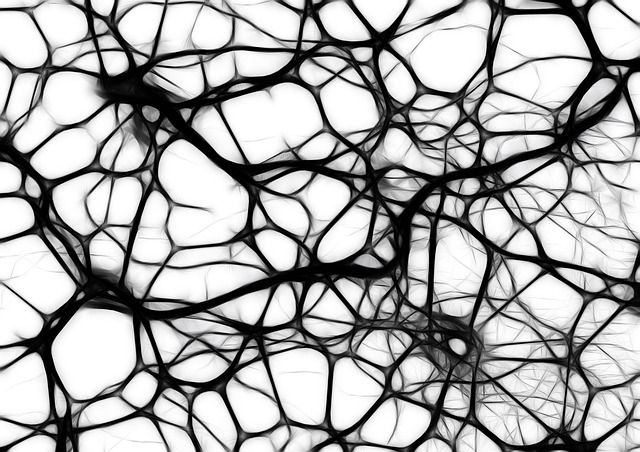The Dreaming Mind after a Day of Games: Video Gaming and Dream Generation
Dream generation and development have been controversial topics for those who want to curate the visions they see when they are asleep. In fact, scientists have been continuously studying dreaming from the perspective of psychology and neurology [1]. Dreaming has first been closely associated with the rapid eye movement (REM) phase of sleeping, where dreams are thought to be visualized by the unconscious brain [2]. While one may have difficulty controlling the visual contents of your dream, there have been theories on how to induce dream development.
As technology becomes part of everyone’s daily life and habits, there have been serendipitous discoveries of how digital gaming affects the capacity to dream in individuals. From psychological theories to neurological experimental studies, video games have done something beyond their reputation as a part of the digital entertainment industry and now have been looked further into their effects in something vital such as sleep. And now, it is thought to be instrumental in dream development.
Learn to Lucid Dream
![]() Join others in a community made for lucid dreamers. Perform tasks in an exciting lucid dream game and get real-world rewards.
Join others in a community made for lucid dreamers. Perform tasks in an exciting lucid dream game and get real-world rewards.
The Theory: Gaming and Dreaming
Like any other discoveries in science, it all starts with a theory. The Tetris Effect, also known as the Tetris Syndrome, is where an individual plays Tetris, and once asleep, one will still be able to dream about playing [3]. This phenomenon is supported by the neurophysiology of recall, where the hippocampus visualizes recent experiences within the day, serving as a hippocampal replay during sleep manifesting as dreams eventually aiding in long-term memory formation [4]. Moreover, this theory is being investigated in other video games that people may find beneficial for memory consolidation and dream generation.
Brain under Dreams
Hippocampus has been a central part of the conversion from short-term to long-term memories. While this part of the brain has been observed experimentally for its function on learning, the hippocampus was found to have a peculiar behavior amongst the rest of the brain. Upon waking up, the hippocampus was found to be sending information to the neocortex for processing, instead of taking in information during the day. This may be the primary reason why dreams cannot be remembered as a stable memory as these thoughts are not returned back to the hippocampus and converted to long-term memories, and known as amnesiac dreaming [5].

Dreaming, being known to be instrumental for memory formation, efficiently does this at a cellular level. The neurons utilize an increase in calcium exchange in dendrites, where the neural connections get pruned and reconnected in order to accommodate newly formed memories and learned knowledge, especially during REM sleep [6]. This is visualized by the individual as a replay of what occurred during the day in the form of a dream.
All of these are proven by the increase in brain mass in the medial prefrontal cortex, the part of the brain contributory to cognitive functions such as attention and memory consolidation, in people who frequently dream than the ones who don’t [7]. This further proves how dreaming is beneficial to the overall function of the mind.
All of these are what happens during dreaming and potentially at a much higher rate after playing video games.
The Dreaming Brain after a Day of Video Games
All of these memory function has been observed in the place cells in the hippocampus which creates a mental map of the environment from which the individual has been exposed, which translates to digital games that require cognitive mapping and spatial skills [8]. In extension, as the hippocampus naturally utilizes the function of place cells in learning and memory, the hippocampus has been found to improve its function through regular engagement in games requiring cognitive spatial skills [9]. Combining this with the inherent processing of dreams in the hippocampus, playing certain video games can replicate the experience to their dreams for that subsequent REM sleep, and can improve memory consolidation of the skills utilized.
In addition to this, as video games have different natures, objectives, and overall approaches, a myriad of gaming experiences can be introduced to people and extended to their dreams. One genre of video games that are studied for their effects is drama-based video games aiming to heal the mind from psychological damage [10].
Furthermore, these functions can be tested and applied in other forms of multimedia platforms from television shows, movies, and podcasts, replicating the experiences in the dream and further consolidating them in one’s memories.
Real-world Benefits and Risks
In relation to real-world benefits, these studies have found that video games may have a connection with long-term memory consolidation, and can be of further interest to scientists and gamers alike [11]. In addition to this, people may be more engaged in their own dreaming experiences.
Furthermore, dreaming offers more avenues of multisensory experiences including somatic sensory dream replay, improved dream recall, and higher-cognition self-awareness. From a neuroscience perspective, dreaming is also correlated to the continuous neuroplasticity or reconnecting of neural dendrites that comes with learning and relearning [12]. Without dreaming, potential consequences may include a decrease in brain mass attributed to lower brain activity during sleep.

On the other hand, such knowledge may give people ideas of self-experimenting on video games and dreams. People may take more time under the consumption of their days with video games, in an effort to try out its effects on dreaming. People must also manage their expectations as testing the video game-dream correlation may have different results as people have different capacities for dreaming, depending on a multitude of factors such as age, neuropsychological status, and overall health.
Conclusion
Dreaming may be dependent on the activities one undertakes within the day and with the endless possibilities in multisensory experiences offered by current technology, dream generation, and development would improve as well. The variations in dream content can be taken advantage of for clinical, personal, and even entertainment purposes. The different genres of video games can offer a variety of dream content. For instance, an interactive video game can offer a more somatosensory dreaming experience, improving the overall sleep quality in people.
Moreover, dreaming would gain more attention as a topic for studies on the physiology of dreams, the correlation of dreaming to cognition, and the overall psychology of dreaming.
[1] Egorova, P. A. (2014). Dream as a subject of psychological research. Psychological-Educational Studies, 6(1), 19-27.
[2] Eiser, A. S. (2005, March). Physiology and psychology of dreams. In Seminars in neurology (Vol. 25, No. 01, pp. 97-105). Copyright© 2005 by Thieme Medical Publishers, Inc., 333 Seventh Avenue, New York, NY 10001, USA..
[3] Yung, K., Eickhoff, E., Davis, D. L., Klam, W. P., & Doan, A. P. (2015). Internet addiction disorder and problematic use of Google Glass™ in patient treated at a residential substance abuse treatment program. Addictive behaviors, 41, 58-60.
[4] Schapiro, A. C., McDevitt, E. A., Rogers, T. T., Mednick, S. C., & Norman, K. A. (2018). Human hippocampal replay during rest prioritizes weakly learned information and predicts memory performance. Nature communications, 9(1), 1-11.
[5] Nir, Y., & Tononi, G. (2010). Dreaming and the brain: from phenomenology to neurophysiology. Trends in cognitive sciences, 14(2), 88-100.
[6] Stickgold, R. (2001). Sleep, Learning, and Dreams: Off-line Memory Reprocessing. Science, 294(5544), 1052–1057. doi:10.1126/science.1063530
[7] Vallat, R., Eichenlaub, J. B., Nicolas, A., & Ruby, P. (2018). Dream recall frequency is associated with medial prefrontal cortex white-matter density. Frontiers in psychology, 9, 1856.
[8] Best, P. J., White, A. M., & Minai, A. (2001). Spatial processing in the brain: the activity of hippocampal place cells. Annual review of neuroscience, 24(1), 459-486.
[9] Kühn, S., & Gallinat, J. (2014). Amount of lifetime video gaming is positively associated with entorhinal, hippocampal and occipital volume. Molecular psychiatry, 19(7), 842-847.
[10] Schafer, S. B. (2011). Optimizing cognitive coherence, learning, and psychological healing with drama-based video games.
[11] Wamsley, E. J. (2014). Dreaming and offline memory consolidation. Current neurology and neuroscience reports, 14(3), 1-7.
[12] Askenasy, J. J. M., & Lehmann, J. (2013). Consciousness, brain, neuroplasticity. Frontiers in Psychology, 4, 412.



Recent Comments